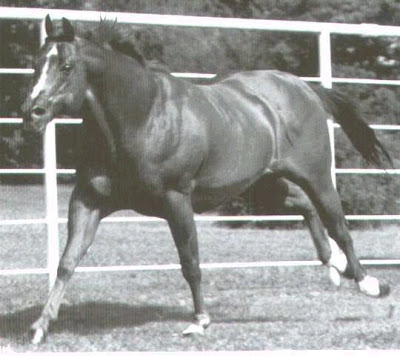"Are you going to go to college or dig ditches?"
Thursday, February 5, 2009
Posted by Susanna Murrell at 7:45 AM 0 comments
revamping
Apparently I am in need of a shift in focus. I've been talking to Hannah and she said when she changed her topic she felt so relieved. Sara's progress reports give the same message. I know I am really interested in natural horsemanship and "horse whisperers". I might move more towards analyzing the efficacy of these methods in horse training versus alternative methods.... could be interesting but not so original.
Posted by Susanna Murrell at 7:10 AM 0 comments
Monday, February 2, 2009
thoughts on narrowing
After our thesis buddies meeting today I've gotten one step closer to narrowing my thesis. I'm definitely going to focus on the specific type of relationship between horses and humans. I like the idea that no other animal and human have the same relationship. It seems to me that horses don't do as they are told because they are told but because they like to succeed. Horses seem to be more competitive and driven than other species. I mean if an 1000 pound animal didn't feel like going over the jump, I'm sure it would choose not to. So I've been thinking that maybe my purpose statement should be...
Posted by Susanna Murrell at 12:21 PM 0 comments
Thursday, January 29, 2009
list
Animal Psychology: New trends and innovations
Posted by Susanna Murrell at 9:18 AM 0 comments
Wednesday, January 28, 2009
be the leader.
I don't know if any of this makes sense, so don't feel like you need to read it. I'm just in a zone and typing away.
Posted by Susanna Murrell at 7:35 AM 0 comments
Horses as property...
I was reading articles that had to do with equine psychology when I came upon a project called WHEEP which keeps a herd of horses in a wild but contained environment for studying. The project is shut down now, but the research is not being written. I was reading part of a blog on the topic and thought it was really interesting how we hardly now anything at all about the natural characteristics of the horse. In the wild they are like mystical creatures that no one can pin down. However, now that most horses are domesticated, they are treated like property and no one gives a second thought to allowing them to be "natural" instead of conforming to our standards. Like most domesticated animals I guess.
Posted by Susanna Murrell at 7:30 AM 0 comments
Thursday, January 22, 2009
Sarabrent "But that's where the hole is"
So its time for me to do some serious narrowing down. I've decided I don't want to deal with dogs or cats since they are so domesticated that their natural behaviors have been skewed. I wish I could focus on wild animals like lions or elephants but I'm not sure how I could research this besides interviewing zookeepers. Even zoo animals' behaviors are affected by captivity so that's getting away from my main idea. I wish I could do something with horses since I've been riding for 11 years and have a horse so research would be easy. However I'm not sure if this topic would be too narrow. I could talk to my trainer and the two or three vets that I know really well and I know would let me do rounds and get to see lots of horses. But then again that might be moving more towards medicine and further away from the actual behavior. AHHH I can't seem to pin down a topic. I'm curious about to many things that only fit under a broad category. Help. I think we need to have a meditation day to destress.
Posted by Susanna Murrell at 10:08 AM 0 comments

